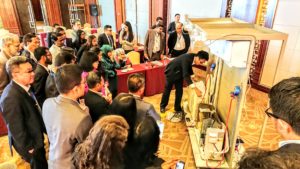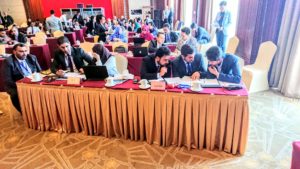 BEIJING, 17 April 2018— The first of a series of unique regional workshops to promote energy-efficient cooling concluded last Thursday in the Chinese capital. The “Twinning Workshop on Energy-Efficient and Climate-Friendly Refrigeration and Air Conditioning” aimed to strengthen cooperation between two traditionally separate communities – those responsible for managing compliance with the Montreal Protocol on Substances that Deplete the Ozone Layer, and those who craft national energy policies. With their combined expertise and remits, these officials are key to transitioning global markets toward better performing cooling products.
BEIJING, 17 April 2018— The first of a series of unique regional workshops to promote energy-efficient cooling concluded last Thursday in the Chinese capital. The “Twinning Workshop on Energy-Efficient and Climate-Friendly Refrigeration and Air Conditioning” aimed to strengthen cooperation between two traditionally separate communities – those responsible for managing compliance with the Montreal Protocol on Substances that Deplete the Ozone Layer, and those who craft national energy policies. With their combined expertise and remits, these officials are key to transitioning global markets toward better performing cooling products.
This two-day workshop included representatives from 31 governments in South Asia, South-East Asia, and West Asia. It was organized by UN Environment’s OzonAction and United for Efficiency initiatives in cooperation with the international engineering society ASHRAE, and hosted by China’s Ministry of Ecology and Environment (MEE). The International Energy Agency, as well as regional energy organisations and Chinese training institutes presented a variety of information on technology and policy solutions related to energy-efficient cooling. The workshop series is supported by the Kigali Cooling Efficiency Program (K-CEP), a new philanthropic initiative that is committing $52 million to help developing countries transition to energy-efficient, climate-friendly, affordable cooling solutions.
 The catalyst for the workshop series is the Montreal Protocol’s Kigali Amendment. The Kigali Amendment is helping to protect the climate by phasing down the use of hydrofluorocarbons (HFCs), which are powerful greenhouse gases that exacerbate climate change. HFCs are commonly used in the operation of air conditioners and refrigerators. Improving the energy efficiency of those products while transitioning to non-HFC alternatives will save consumers and businesses money on their electricity bills, help governments and utilities meet ever growing needs for power, and reduce impacts on the environment. By some estimates, the Montreal Protocol has prevented the equivalent of 135 billion tonnes of carbon dioxide (CO2) emissions from entering the atmosphere, making it an extremely powerful tool for greenhouse gas reduction. It is poised to do even more under the Kigali Amendment, which enters into force on 1 January 2019.
The catalyst for the workshop series is the Montreal Protocol’s Kigali Amendment. The Kigali Amendment is helping to protect the climate by phasing down the use of hydrofluorocarbons (HFCs), which are powerful greenhouse gases that exacerbate climate change. HFCs are commonly used in the operation of air conditioners and refrigerators. Improving the energy efficiency of those products while transitioning to non-HFC alternatives will save consumers and businesses money on their electricity bills, help governments and utilities meet ever growing needs for power, and reduce impacts on the environment. By some estimates, the Montreal Protocol has prevented the equivalent of 135 billion tonnes of carbon dioxide (CO2) emissions from entering the atmosphere, making it an extremely powerful tool for greenhouse gas reduction. It is poised to do even more under the Kigali Amendment, which enters into force on 1 January 2019.
The host country, China, has been making impressive strides in both the Montreal Protocol and energy efficiency. Mr. YU Lifeng, Deputy Director General of the Foreign Economic Cooperation Office of MEE, stated that “The Kigali Amendment is a milestone document after the Paris Agreement, and it commenced a new era of synergistic solution to global environmental issues such as ozone depletion and climate change. China has always actively participated in global environmental governance, attached great importance to energy efficiency and energy consumption reduction, and proposed green, low-carbon, recycling and sustainable modes of production and living. This meeting will provide an excellent opportunity for managers of different fields, senior representatives of governments and industry to share experiences and achievements and to strengthen exchanges and cooperation, build consensus, so as to jointly promote the development of environmentally friendly alternative technologies.”
Dr. Shamila Nair Bedouelle, head of UN Environment OzonAction said “The Kigali Amendment presents an opportunity for developing countries to make a truly historic contribution to climate protection by selecting energy-efficient cooling technologies during the coming HFC phase down. The road ahead requires enhanced cooperation between the Montreal Protocol and energy communities. UN Environment is honored to support this twinning process to empower action on HFCs and energy efficiency in line with national priorities.”
Dr. Bjarne W. Olesen, President of ASHRAE noted technologies are available to reduce the amount of energy that buildings use. He added, “It is critical that first we remember we do not build buildings to save energy. We build buildings to provide comfortable environments and sustain modern day life. ASHRAE can guide developing countries in the design of buildings and processes that require the least amount of energy necessary and then apply technologies to use it efficiently.”
Ms. Hu Min Hu of K-CEP explained the role of the twinning project as part of its larger portfolio. She noted that “The twinning project is one of the best examples representing KCEP’s mission and core value to integrate energy efficiency and HFC phasing down while implementing Kigali amendment. We only have a very short time window to make a difference tackling climate change and we need to get it right by help putting the right people together.”
The meeting provided a platform for the national energy officials to learn more about the Kigali Amendment and for National Ozone Officers to better understand how energy efficiency considerations could be included in their regular work. All 100 participants particularly appreciated a hands-on technology demonstration that followed the initial presentations.
During the workshop, participants learned about policies for transforming refrigeration and air conditioning markets, and resources and funding options to do so. Successful case studies from three participating regions were presented and discussed. Important issues of identifying and engaging relevant stakeholders, considering gender norms and issues, collecting and utilizing data, and implementing model policies and programmes were covered through practical exercises and interactive discussion sessions. The workshop achieved its goal of starting a “twinning” dialogue between the Ozone Officers and energy officials and beginning the flow of information at the national le el related to the energy efficiency and refrigerants nexus, the first step down the road towards realizing the goals of the Kigali Amendment.
Learn more
Twinning of national ozone officers and energy policymakers, OzonAction
Contact
Jim Curlin, Network and Policy Manager, OzonAction
UN Environment. Phone: +33 1 44 37 14 55
Brian Holuj, Programme Officer, United for Efficiency,
UN Environment. Phone: +33 1 44 37 42 60
GUO Xiaolin, Deputy Director of Division III
FECO/MEE. Phone : +86-10-8226-8883


Leave a Reply